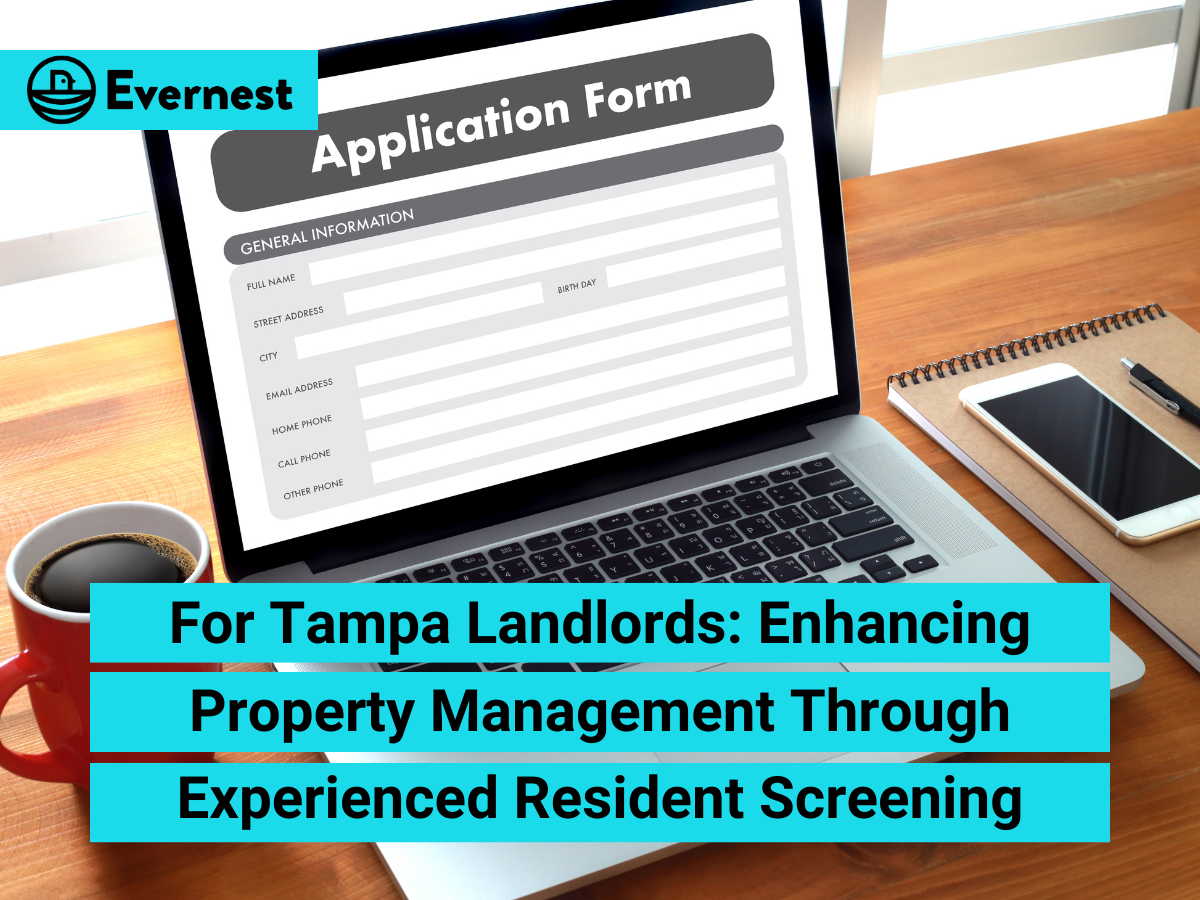In the competitive world of property management, finding reliable and long-term residents is vital to the success of any landlord. One key strategy that can greatly enhance property management is resident screening. By thoroughly screening potential residents, landlords in Tampa can reduce turnover, minimize rental income loss, and ensure a harmonious community of tenants. In this article we’ll discuss the importance of resident screening and lay out key strategies to help landlords make the most of this powerful property management tool.
Introduction: The Importance of Resident Screening
At first glance, resident screening may seem like a time-consuming process, but it leads to far greater property management efficiency in the long run. Thorough screening allows landlords to carefully select residents who will not only pay their rent on time but also take care of the property and contribute positively to the community. It is a proactive measure that can save landlords from the headaches and financial burdens associated with problematic tenants.
Why Thorough Screening Matters
Resident screening has numerous advantages. For one thing, it reduces resident turnover. Each time a tenant moves out, landlords must invest time and resources into finding a new resident, from advertising the vacancy to screening potential candidates. By implementing an effective screening process, landlords can reduce turnover and avoid the associated costs.
Additionally, thorough screening minimizes the risk of rental income loss. By selecting residents with a proven track record of responsible financial behavior, landlords can rest assured that their monthly rent payments will be consistent.
A harmonious resident community is also a significant benefit of thorough resident screening. When residents are carefully selected based upon their ability to provide good references and pass criminal background checks, there is a greater likelihood of peaceful coexistence and a safe living environment for all tenants.
Long-Term Benefits
Implementing a resident screening process yields long-term benefits for Tampa landlords as well.
Firstly, stable cash flow is a major advantage. By selecting reliable residents who consistently pay rent on time, landlords can ensure a steady income stream. This stability enables landlords to plan and invest in improvements, enhancing the overall value of the rental property.
In addition to financial stability, thorough resident screening also reduces maintenance and repair costs. Residents who have a history of responsible behavior are more likely to take care of the property, resulting in fewer damages and costly repairs. This translates into savings for the landlord and a well-maintained property for the residents.
Moreover, effective screening contributes to an enhanced reputation. Word spreads quickly among potential residents about the quality of a rental property and its management. By maintaining a community of reliable and respectful residents, landlords can attract high-quality applicants and maintain a positive image in the rental market.
Developing a Screening Criteria
Creating an effective screening criteria is the foundation of a successful resident screening process. Landlords must ensure compliance with fair housing laws to avoid discriminatory practices. Key criteria to consider include:
Credit score: A good credit history demonstrates financial responsibility and the ability to handle financial obligations.
Employment history: Stable and consistent employment provides reassurance that the resident has a steady income to cover rent.
Past rental history: Checking the previous rental history gives insight into how well the potential resident has maintained and respected previous properties.
Criminal background checks: Ensuring the safety of the community by identifying any potential risks associated with a prospective resident.
Implementing the Screening Process
Once the screening criteria are established, landlords can implement a thorough screening process. This process typically involves:
Application forms: Collecting detailed information from potential residents to evaluate their qualifications.
Interviews: Conducting personal interactions with potential residents to gauge their compatibility with the property and existing community.
Reference checks: Contacting previous landlords and employers to verify the applicant’s history, including behavior and reliability as a tenant.
Technological Tools to Consider
Implementing a technology-driven approach can streamline the screening process and make it more efficient. Online resident screening services, for example, can provide credit reports, criminal background checks, and rental history verification. Property management software with integrated screening features allows you to seamlessly manage the entire resident screening process from start to finish.
Professional Help
For landlords who prefer to outsource the screening process or require additional expertise, hiring a property management firm that specializes in resident background checks can be a smart investment. These professionals have the necessary tools and knowledge to conduct thorough screenings and interpret the results effectively. Alternatively, landlords can provide training for their staff to ensure they can handle the screening process internally.
Handling Difficult Residents
Despite thorough screening, landlords may still deal with difficult residents. To handle such situations, landlords can adopt preventive measures and effective conflict resolution strategies:
Preventive measures: Clear communication of property rules and consequences in the lease agreement can help set expectations and discourage problematic behavior. Regular inspections with open lines of communication also allow landlords to address any issues promptly.
Dealing with issues: In some cases, legal action may be necessary. Landlords should be familiar with eviction processes and other legal recourse available in Tampa. However, in many situations, conflicts can be resolved through effective communication and negotiation, minimizing the need for legal involvement.
Conclusion
In conclusion, resident screening is a vital aspect of property management for Tampa landlords. Thorough screening reduces resident turnover, minimizes rental income loss, and fosters a harmonious community of residents. By developing a comprehensive screening criteria, implementing effective screening processes, utilizing technological tools, and seeking professional help when needed, landlords can enhance their property management practices and create a positive and profitable rental business.
Looking for a property management company in Tampa to assist with resident screening and other tenant related matters? Reach out to our local team to learn more about our services!


